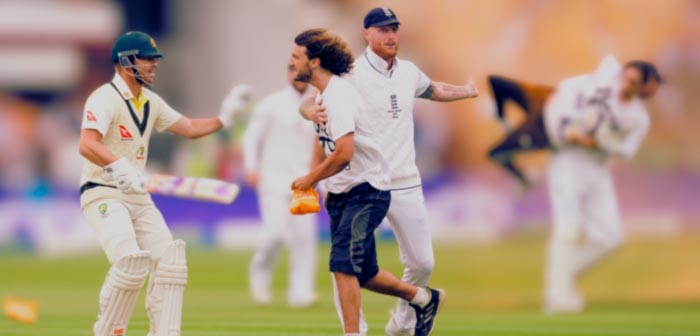Under the overcast and gloomy skies of Leeds, Travis Head once again displayed his resilience and aggression, playing a crucial innings to keep the game evenly poised. The rain-curtailed day posed immense challenges for batsmen, with the pitch being relentlessly pounded and the old ball swinging and seaming at the hands of Chris Woakes and Stuart Broad. However, Head has established himself as a shining presence amidst the difficult conditions.
In his characteristic style, Head unleashed counter-attacking shots in his gritty innings of 76, helping Australia set a target of 251 runs. England, with their characteristic gusto, responded by scoring 27 runs without losing any wickets, leaving the match intriguingly balanced. The outcome on the final day would heavily depend on the overhead conditions.
For most of the day, Head faced the barrage of short-pitched deliveries but remained cautious, refraining from aggressive strokes and instead opting to pull the ball to the leg-side field, avoiding any risky miscues. England employed an inverse umbrella field, positioning all nine fielders on the boundaries to deter Head’s counter-attacks. He patiently resisted until Mitchell Starc’s dismissal left him with limited options.
Head then unleashed an array of powerful shots, including two fours off Woakes, one behind point and the other through mid-wicket. In the following over, he punished Mark Wood with a boundary through square leg. He continued his assault by smashing Woakes for a six and a four. Alongside his aggressive strokeplay, Head expertly rotated the strike. When he found himself with only one partner left, he switched into frantic mode and hit Mark Wood for two towering sixes, guiding Australia to a competitive total.
As the ball became ragged, it lost some of its potency to trouble Head. However, Alex Carey and Mitchell Marsh fell victim to unexpected bounce rather than swing. Both batsmen attempted to leave the ball based on length, but the ball unexpectedly ricocheted off the undersides of their gloves, resulting in Marsh’s dismissal to the wicket-keeper and Carey’s stumps being disturbed. The bounce, combined with the swing that had troubled them throughout the session, contributed to their dismissals.
Interestingly, England persisted with the short-ball strategy against Head at the start of his innings, even though the ball swung vigorously whenever it was pitched up. England realized their mistake early on, when a Chris Woakes bouncer swung menacingly across Head, catching Jonny Bairstow off-guard as he anticipated the ball to arrive on the leg side. Despite this perceived vulnerability, Head managed to safely pull the short balls to the deep for singles or defended them with agility, hopping and leaping while blocking towards mid-on. England would soon regret their decision.
Before dismissing Carey, Woakes delivered a beautifully-seamed delivery that held its line after swinging past the fluent Marsh. It is astonishing to think that Woakes had not played a Test match in 16 months, as he bowled with the precision and finesse of a seasoned campaigner. With smooth and elegant strides, he consistently hit the perfect length, challenging the off-stump and forcing defensive strokes. Amidst the spotlight on Ben Stokes and the blistering pace of Mark Wood, Woakes quietly played a significant role in this Test match.

